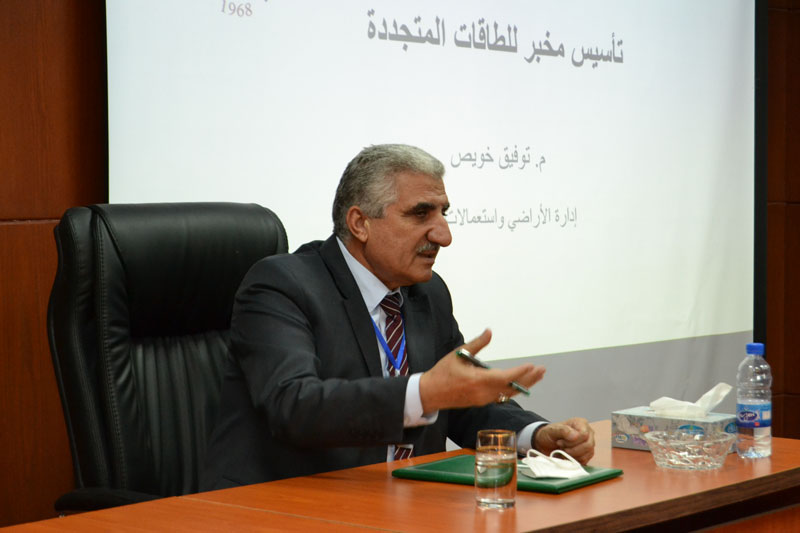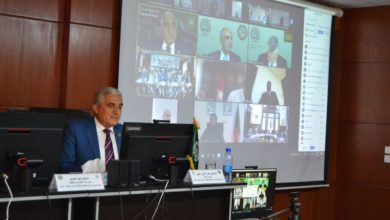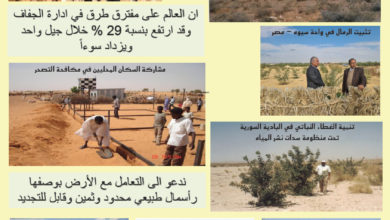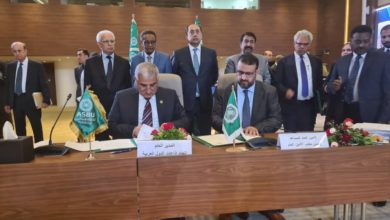A scientific presentation about the project to establish a laboratory for Renewable Energy in ACSAD
The Director-General of the Arab Center for the Studies of Arid Zones and Drylands ( ACSAD), Dr. Nasr Edin Obaid, confirmed that the economic and social development of the Arab arid and semi-arid regions is one of the most important goals of ACSAD.
He added during the opening of the scientific presentation at ACSAD headquarter in Damascus on 23/12/2020, in the presence of turnout of Arab and Syrian experts, Energy availability is a prerequisite for achieving this goal. However, with the scarcity of regular electric energy in these areas, it has become imperative to search for sources of alternative energy sources.
The Director-General explained that renewable energy use has become today one of the main axes toward the transition to a sustainable energy system, and the attention has been increased to generate electricity from renewable energy sources in the world, as one of the purposes of the seventh goal of the 2030 Sustainable Development Plan adopted by the United Nations in 2015.
He pointed out that the increasing dependence on renewable energies leads to a decrease in the costs of electricity produced from them, noting that Arab countries depend for about 94% on fossil fuels as a main source of electric energy production (except Sudan, which depends mainly on Nile River for electricity and oil).)
The Director-General of the Arab Center organization (ACSAD), Dr. Nasr Edin Obaid, noted that the organization was a pioneer in the Arab world in raising the issue of renewable energies through its implementation of the project on biogas technologies and deployment them in the Arab countryside, where hundreds of fermenters were established in the countryside of some Arab countries, such as Yemen, Sudan, Syria, and others. He also stressed the need for ACSAD experts to follow up on what they had accomplished and ensured the continuity of work on the projects they had carried out even if the implementation period had ended.
The green energies expert in ACSAD, Engineer Tawfiq Khwais, then presented a scientific presentation on “the project of establishing a renewable energy laboratory in ACSAD,” which he noted at its beginning to renewable and promising sources of energy in the Arab regions, the sources of biomass represented by the various forms of agricultural residues, animal waste of all kinds, and concrete and liquid sewage waste, and the food industry residues).
ACSAD expert then addressed solar energy sources, noting that it is one of promising and renewable energies, especially in agricultural uses such as water pumping for irrigation or other uses, electricity generation, drying agricultural products (food and fodder), soil sterilization, protected agriculture, desalination, and cooking.
He then elaborated on each of these technologies, noting that biomass technologies are not only for producing a source of energy but also for safe disposal of substances that are hazardous to the environment and their natural resources such as olive mill wastewater (OMWW), the Nile flower plant, and sewage and industrial waste.
Engineer Khwais clarified that there are direct and indirect targets from establishing a renewable energy laboratory in the Arab Center organization (ACSAD); the first is to spread the culture of renewable energies in rural areas in simple ways and to design and implement model units (devices) for producing energy from renewable energies with local materials (as far as possible). Finally, doing tests for the most suitable materials to produce the best forms of energy.
However, the indirect objectives are to find safe environmental solutions to many persistent environmental problems such as the Nile flower, Olive Mill Wastewater (OMWW), and others. He then talked about the laboratory’s contents and requirements, noting that all its equipment will be designed and implemented by local expertise and using locally available materials, and it will be tested to suit the rural environment. He noted that the long-term goal is that ACSAD’s renewable energy laboratory is going to be a typical country house offering renewable energy systems that work for rural areas.
In conclusion, the Director-General of the Arab Center (ACSAD), Dr. Nasr Edin Obaid, conducted in-depth discussions among participants, during which the engineer Khwais answered the attendee’s questions and queries.




